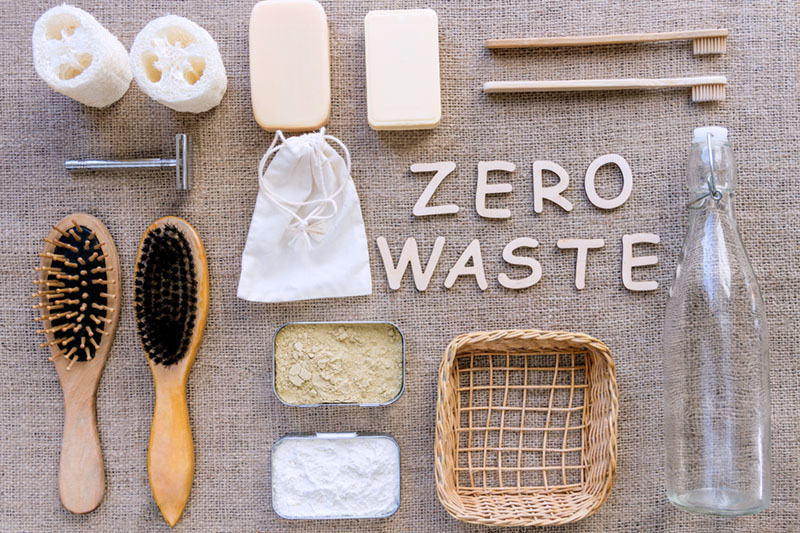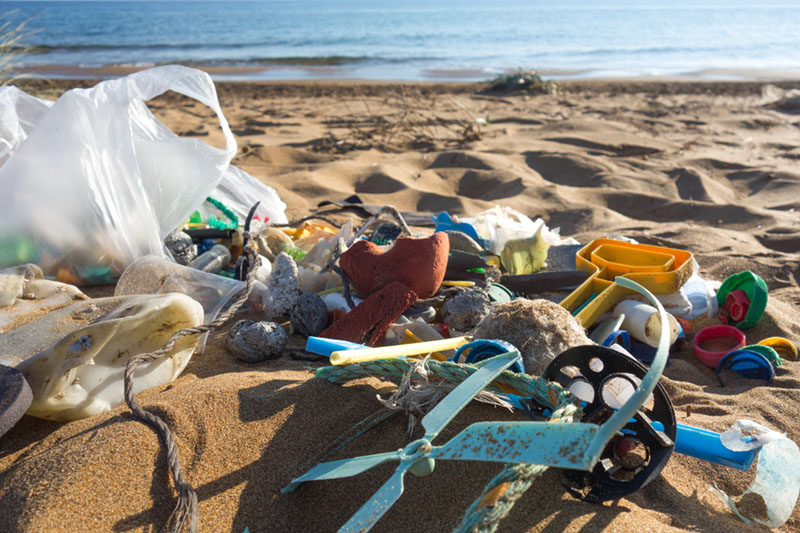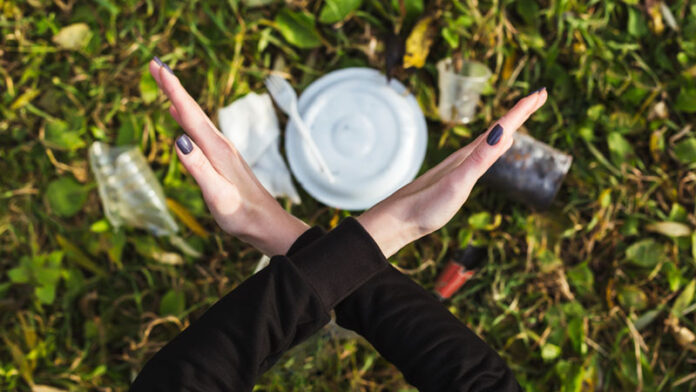So, you’ve heard about the “zero waste” movement and want to get involved. Where to begin?
Well, you’re kind of already “here.” Congratulations, you’ve officially taken your first step towards zero waste! The simple fact that you’re curious about minimizing your waste is a monumental move in and of itself! However, if you’re ready for the next level, we’ve got a few ideas for how you can do a zero waste challenge.
Why Even Do a Challenge?
Is anyone going to be cheering you on? Will you get a gold medal at the end of your day, week, or month of zero waste practices? Probably not. So why even do a “challenge” in the first place?
Well, if you know anything about making changes, you might be familiar with the fact that they’re difficult. We humans are habitual creatures, we like routine and we often find it difficult to switch things up. As anyone who’s tried to quit smoking or start going to the gym, you can probably attest to the fact that “saying” is much easier than “doing.”
But in fact, challenges are a way to circumvent some of these obstacles. They may not influence you to totally change your life, but they’re one of the best tools we have for getting things done. This is because habits are learned—which means that new habits are also learned.
The way we learn new habits, or make changes, happens in several stages. Understand these, and you might have a better idea of what’s to come.
- The precontemplation stage happens before you even decide to make a change! In fact, you might even be in denial about all of those individually-wrapped snacks you throw in the trash everyday…
- The contemplation stage might mean that you’re aware that change could be beneficial, but you likely think that the cons outweigh the pros (don’t get stuck here!).
- Eventually, you’ll reach the preparation stage. You might actually start to make some small changes, or consider a plan of action (if you’re reading this, you’re likely at this stage!).
- Then comes the action stage. To keep the momentum going, consider getting friends or family involved, or reward yourself for any successes.
- The same follows during the maintenance stage, you don’t want to get burnt out or fall victim to temptation…
- … because if you do, you might end up in the relapse stage—which is okay, and it does happen. Instead of feeling disappointed or frustrated, consider what barriers got in the way, and make a plan to overcome them.
A single zero waste challenge shouldn’t be considered a silver bullet that will allow you to totally change your consumption practices. It will require some effort on your time! It will also likely require more than just a seven-day or month-long period, especially as researchers have found that a new behavior might take around 18 to 254(!!) days to stick.
To take a burden off your plate, consider this zero waste challenge as a database of ideas that can help you reduce your impact over time. Experiment with different ideas to see which ones are easy to stick to, and which ones leave you feeling frustrated. Even if you do just one of these, and only do it once, our planet will benefit as a result.


Zero Waste Challenge: The Master List (62 Ideas)
- Buy less (have a no-purchase day once a week, or put a “want” on a wish list for later purchase instead of buying it immediately)
- Use the EPA’s carbon footprint calculator (and make a plan to reduce it)
- Opt out of business newsletters
- Use reusable shopping bags
- Do a trash audit
- Meal plan to reduce food waste
- Avoid plastic straws
- Try a “no ‘poo” period, or use castile soap as shampoo (and body wash, and dish soap, and laundry detergent, and whatever else you can think of!)
- Always have a reusable water bottle with you
- Cook instead of ordering takeout
- If given the option, buy something in glass or metal packaging (easier to recycle) instead of plastic
- Start composting your food scraps
- Invest in a safety razor
- Swap your plastic kitchen sponge with one made with compostable materials (like a natural loofah or wood and bristle brush)
- BYO reusable utensils
- Make the switch to bar soap
- Be sure that your cotton buds are compostable (and switch to organic if you can splurge)
- Check out a local bulk foods store
- Don’t go to the grocery store on an empty stomach
- Switch to a bamboo toothbrush (just remove the plastic bristles before composting!)
- Save and reuse glass jars
- Try a menstrual cup (if you can’t, at the very least, use plastic-free, organic tampons)
- Shop at thrift stores
- Use a food dehydrator to dry fruit and vegetable before they go bad
- Try making your own cosmetics
- Make your own yogurt
- Ride your bike instead of driving
- Eat smaller portions to ensure no waste
- Make your own DIY cleaner
- REUSE WHAT YOU ALREADY HAVE (going zero waste doesn’t mean buying new things!)
- Make your own toothpaste (it can be as simple as baking soda, sea salt, and essential oils)
- Try making your own granola (it’s easy, tasty, and smells SO good while it’s baking)
- Use soap nuts for the laundry
- Use old t-shirts as cleaning rags
- Use a Guppy Friend bag or ball in the laundry to capture microplastics
- Contact your local recycling facility to see what they do and do not accept
- Try growing your own food (herbs are a great place to start, and can even be grown indoors)
- Have a meatless day once a week
- Get a sewing kit and start mending your clothes
- Try a capsule wardrobe
- Try zero waste shampoo and conditioner
- Invest in a bidet
- Make your own snacks (crackers, trail mix, granola bars, chips, etc.)
- Wash clothes according to the labels instructions (to make them last longer)
- Invite friends to join you (create a zero waste kit to get them started!)
- Use a hankie instead of tissues
- Learn to love leftovers
- Improve your coffee habit (ditch K-cups and use a Moka pot or French press instead)
- Say no to freebies
- Figure out what politicians are doing to curb your community’s waste (or make suggestions of your own!)
- Try reusable paper towels (or simply do without)
- Shop at the farmer’s market
- Swap out your lightbulbs to eco-friendly ones (LEDs)
- Make your own wrapping paper
- Give experiences instead of gifts
- Plant natives
- Invest in beeswax wrap
- Pick up litter
- Start or join a local zero waste group
- Vote with your dollars and support brands that are trying to clean up our planet
- Give feedback to your favorite cafe, brand, or restaurant and encourage them to reduce their impact (ditch plastic bags, get rid of plastic straws, offer recycling or composting, etc.)
- Get a library card


How to “Win” A Zero Waste Challenge
Whether you do all of these over the span of two months, or just find a few that seem relatively easy to stick to, you’re doing an amazing job! There’s nearly eight billion of us on this planet, and when more of us make small changes, they can end up having a serious impact.
To multiply your positive impact on our planet, consider sharing this article with your friends or family, or recruit them to join you on your next zero waste challenge.














